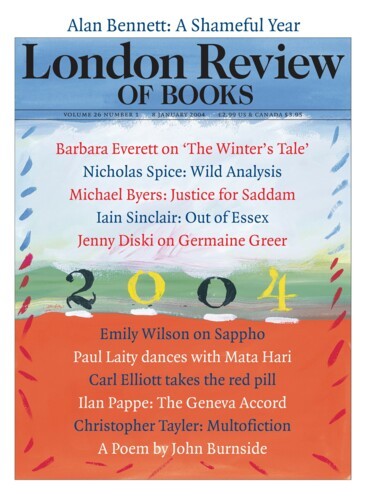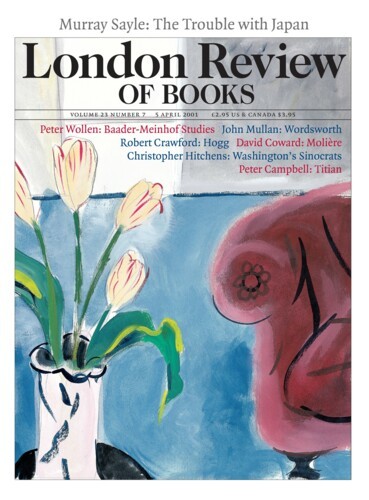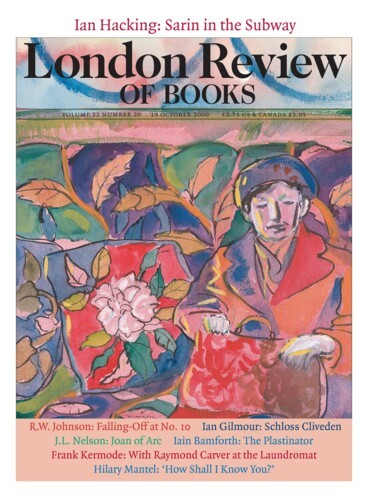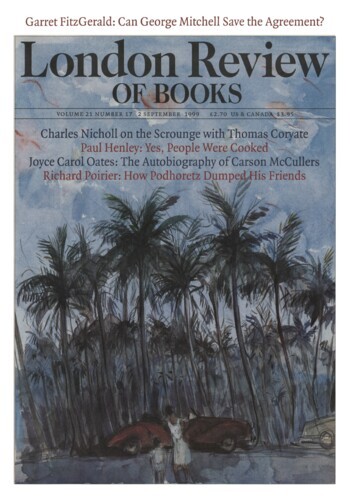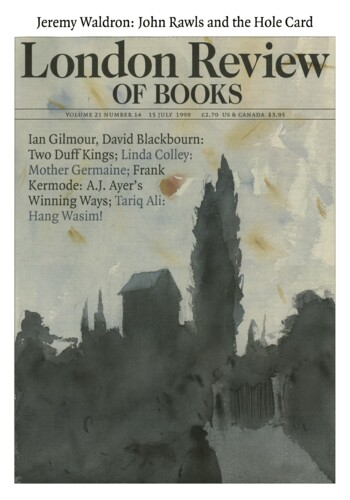John Lloyd
John Lloyd is a former labour editor of the Financial Times and the author of An Anatomy of Russia and Loss without Limit, about the miners’ strike of 1984-85.
A Fue Respectable Friends: British brass bands
John Lloyd, 5 April 2001
George Orwell saw the patriotism of the British working class as an almost unconscious link with the middle and upper classes: ‘Just because patriotism is all but universal and not even the rich are uninfluenced by it, there can be moments when the whole nation suddenly swings together, and does the same thing, like a herd of cattle facing a wolf’ (The Lion and the Unicorn, 1941)....
All Together Now: The British Trade Union
John Lloyd, 19 October 2000
Two days after May Day, the festival of labour, a story appeared on the front page of the Financial Times under the typically downbeat headline: ‘Work permit shake-up targets skill gap.’ It told of the Government’s introduction of a permit system which would allow rapid entry into the UK for foreign professionals and highly skilled technicians – doctors, nurses,...
Like a Dallas Cowboys Cheerleader: globalisation
John Lloyd, 2 September 1999
Thomas Friedman is so much the kind of American that the rest of the world likes to despise that it’s a fair assumption he has, at least in part, adopted the pose consciously. He calls himself a ‘tourist with attitude’ and his attitude is that of the know-it-all, ‘wise up, you dumb cluck’ American journalist who is here to tell you your economy is blown, your politics stink and you haven’t a hope in hell of making it in today’s world. Given that he is writing about the most important political-economic development in the world today – globalisation – it is a shame that he spoils his case by wrapping it in the Star-Spangled Banner.’‘
Diary: The Russian reformers’ new party
John Lloyd, 15 July 1999
When I was in Russia as the Financial Times correspondent, from 1991 to 1996, I liked to think that the reformers who worked under the protection of Boris Yeltsin were good, and their opponents were bad. The story I told myself, and my readers, was more sophisticated than that, of course; but if you had to strip it down to its essentials, that was it. These were my guys.
Pieces about John Lloyd in the LRB
Scotland’s Dreaming
Rory Scothorne, 21 May 2020
Independence is not inevitable, but it is now the engine of Scottish electoral politics, giving shape to its party system, providing motivation for its activists and guaranteeing a constant flow of controversy...
When Capitalism Calls: The Protest Ethic by John Lloyd
Andy Beckett, 4 April 2002
About a year ago, during one of the peaks of exasperation at the Government in the left-leaning parts of the British press, I interviewed a member of a think tank close to New Labour. For an hour...
The Operatic Theory of History: a new Russia
Paul Seabright, 26 November 1998
The current crisis in Russia and the near-unanimous pessimism it has generated about the country’s prospects make this an unfortunate time to be reviewing two books with titles as upbeat as...
Credibility Brown
Christopher Hitchens, 17 August 1989
It is rather a pity, considered from the standpoint of the professional politician or opinion-taker, that nobody knows exactly what ‘credibility’ is, or how one acquires it....
Losers
Ross McKibbin, 23 October 1986
The Upper Clyde Shipbuilders work-in of 1971-72 has been so overlaid by industrial disaster that it is probably no longer even part of the folk memory. It is hard now to associate Jimmy Reid the...
Read anywhere with the London Review of Books app, available now from the App Store for Apple devices, Google Play for Android devices and Amazon for your Kindle Fire.
Sign up to our newsletter
For highlights from the latest issue, our archive and the blog, as well as news, events and exclusive promotions.
